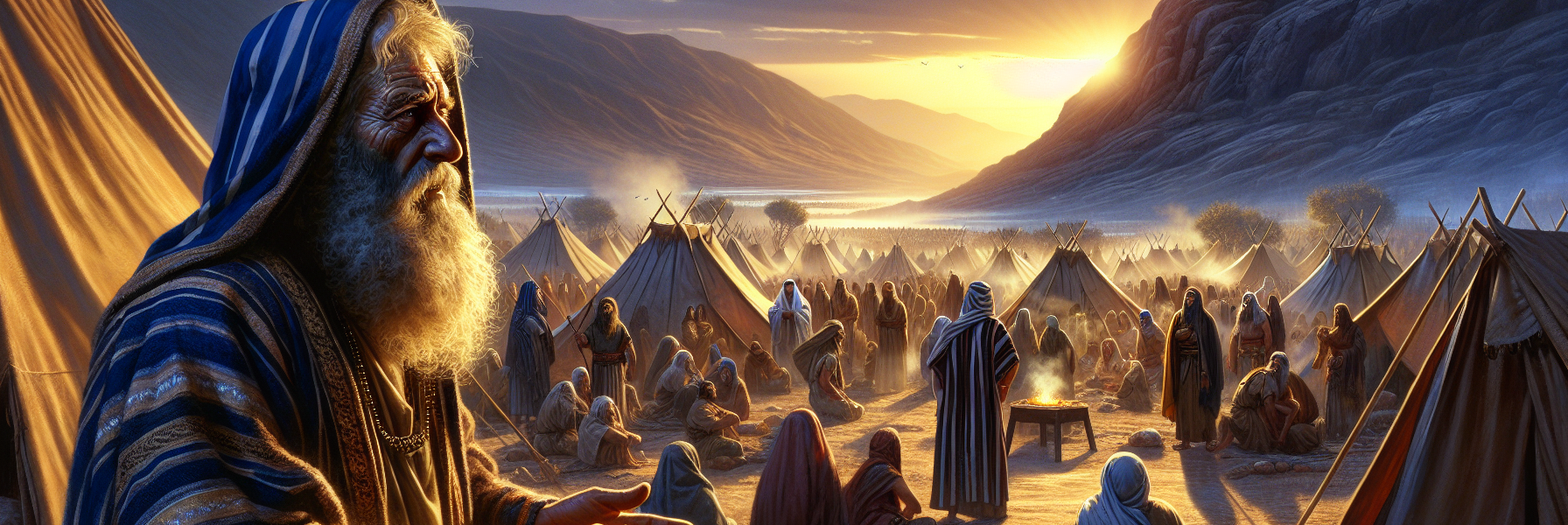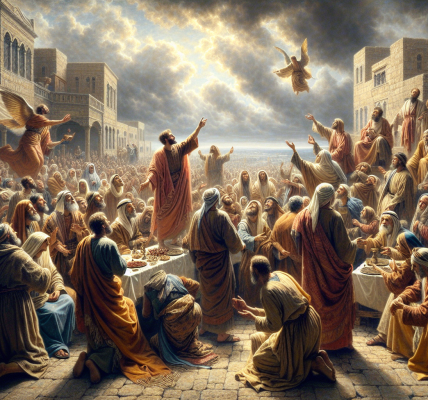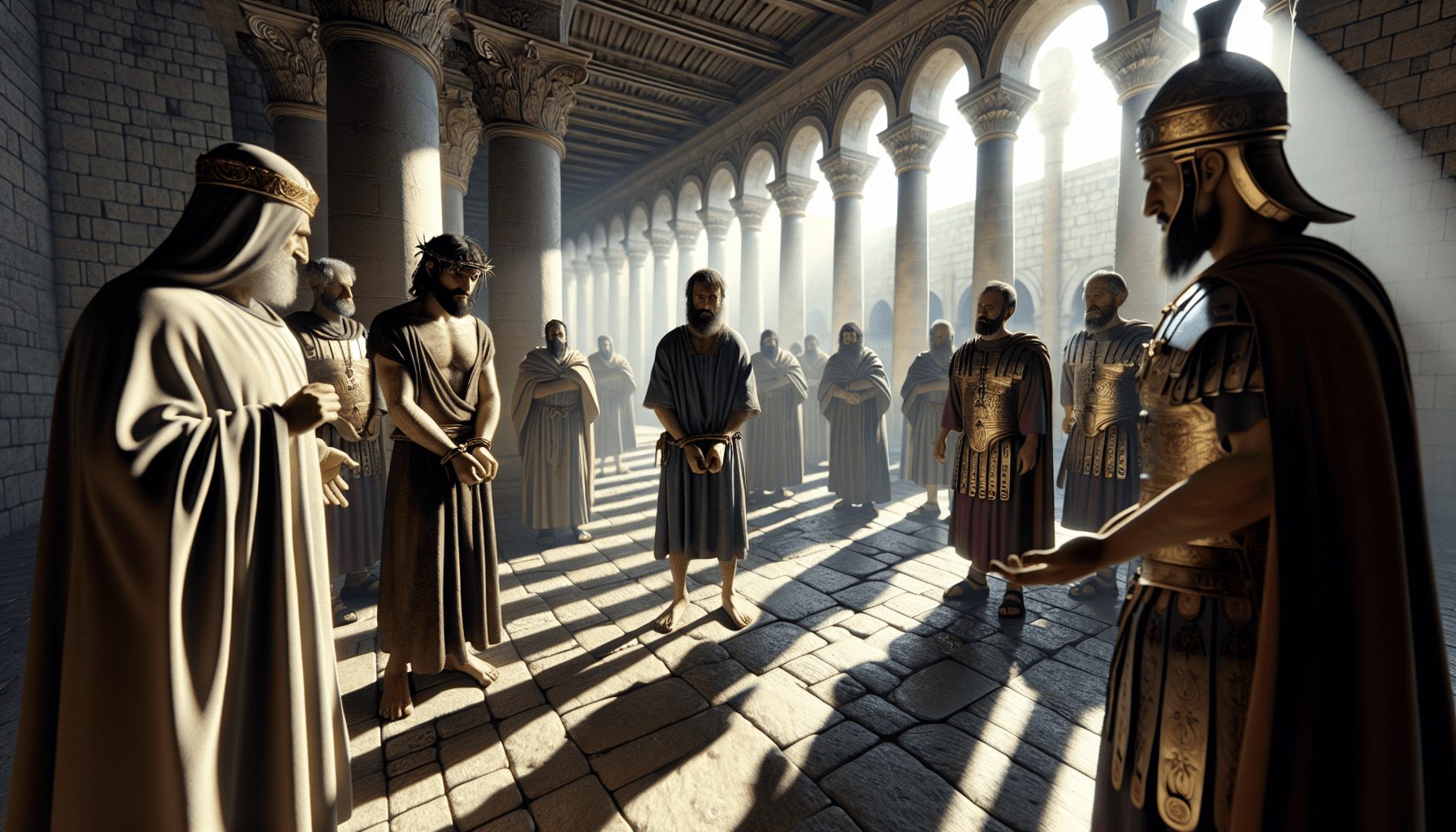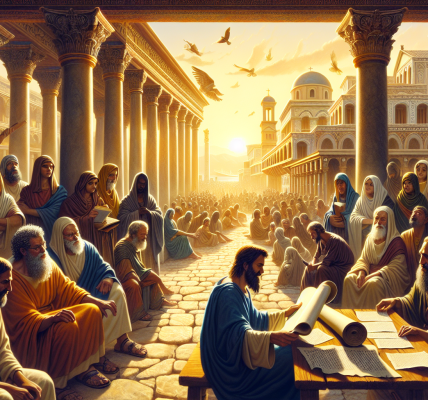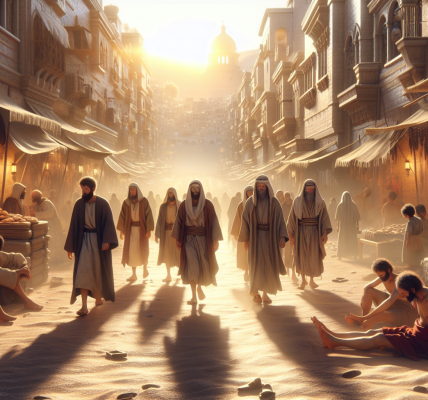**The Warning and the Promise: A Story of True and False Prophets**
The sun hung low over the camp of Israel, casting long shadows across the tents as the people gathered near the foot of the mountain. Moses stood before them, his weathered face lined with years of leading, guiding, and sometimes pleading with this stubborn yet chosen nation. The air was thick with the scent of burning sacrifices, a reminder of their covenant with the Lord.
The people had seen wonders—plagues in Egypt, the parting of the Red Sea, manna from heaven—yet still, their hearts wavered. Now, as they camped on the borders of the Promised Land, Moses raised his hands for silence. His voice, though aged, carried the weight of divine authority.
*”Hear, O Israel! The Lord your God is bringing you into a good land, a land of brooks and springs, of wheat and barley, vines and fig trees. But you must not imitate the detestable ways of the nations there.”*
A murmur spread through the crowd. They had heard rumors of the Canaanites—their sorcerers, their diviners, their soothsayers who whispered to the dead. Some among the Israelites had even begun to wonder if there was power in such dark arts.
Moses’ eyes burned with intensity. *”When you enter the land, you must not learn to imitate the abominations of those nations. There shall not be found among you anyone who burns his son or his daughter as an offering, anyone who practices divination or tells fortunes or interprets omens, or a sorcerer, or a charmer, or a medium, or a necromancer, or one who inquires of the dead.”*
A young man named Eliab shivered. He had once been curious about the whispered secrets of the Canaanite priests—how they claimed to speak to spirits, to see the future in the stars. But now, hearing Moses’ words, he felt the fear of the Lord settle upon him.
*”For whoever does these things is an abomination to the Lord,”* Moses continued. *”And because of these abominations, the Lord your God is driving them out before you.”*
Then his tone softened, not with weakness, but with promise. *”But the Lord your God will raise up for you a prophet like me from among you, from your brothers—it is to him you shall listen.”*
Eliab’s heart quickened. A prophet like Moses? One who would speak the very words of God?
Moses reminded them of the day at Horeb, when the mountain trembled with fire, and the people had begged not to hear the voice of God directly lest they die. *”And the Lord said to me, ‘They are right in what they have spoken. I will raise up for them a prophet like you, and I will put my words in his mouth, and he shall speak to them all that I command him.’”*
A reverent silence fell. The promise was clear: God would not leave them without guidance. But there was also a warning.
*”But the prophet who presumes to speak a word in my name that I have not commanded him to speak, or who speaks in the name of other gods, that same prophet shall die.”*
Eliab swallowed hard. How would they know the difference?
As if reading his thoughts, Moses answered, *”If you say in your heart, ‘How may we know the word that the Lord has not spoken?’—when a prophet speaks in the name of the Lord, if the word does not come to pass or come true, that is a word that the Lord has not spoken.”*
The lesson was clear: God’s word would never fail. His true prophets would never lead them astray.
As the assembly dispersed, Eliab looked toward the horizon where the Promised Land lay. He knew now that they would face not only physical battles but spiritual ones. There would be deceivers, false prophets with smooth words and lying signs. But there would also be the true voice of God, speaking through chosen men—and one day, through the greatest Prophet of all.
With renewed resolve, he turned away from the fading glow of the sun, trusting that the Lord would guide His people—now, and always.
